Postcard: Habitat
No. 005 - on information and filters.
Postcard is a weekly curation of things I think are beautiful or interesting. Each postcard will be named after a word and contain something to listen to, something to look at, and something to think about. I welcome you to share any thoughts in the comments. Thank you!
Postcard: Habitat
habitat:
(n.) The natural home or environment of an animal or plant.
(adj.) habitable - of a good enough condition to live in.
†Meanings from the Oxford English Dictionary (OED)
Something to listen to:
Something to look at:
As we approach the end of winter, I find myself reflecting on the relationships in my life and what they mean to me. There are so many people I have come to cherish, all for different reasons. The older I get, the less desire I have to control the shape of a relationship. If I have a desire, don’t get me wrong, I will act on it and do so with confidence and clarity (as one should). But I find that when I’m in a state of connection—which feels more like an impartial surrender to the divine unexpectedness of the universe than a need to grasp anything tightly at all—everything just flows and grows organically. I know who I am, I know what I’m about, and downstream of that lies only curiosity about others and the world we all live in.
Some of the most profoundly delightful friendships in my life are also the least likely. If I rejected, or even just failed to nurture, something good because it didn’t show up in the shape or form that I was expecting, I would be committing… well, some kind of sin. A lack of gratitude, a lack of attentiveness? Mmm. Perhaps those are the exact same thing. Would that mean perceptiveness is a virtue?
I have also been thinking about our relationships with machines and technology. The so-called culture war in America often frames technology and progress as “at odds” with tradition. I don’t see it that way. It is possible for technology to harmonize with the human spirit, with the natural world, with culture. We are simply still learning.
Here are some images from Studio Ghibli’s The Wind Rises (2013), on the themes of winter and the complex relationships between man, machines, and nature.
(Courtesy of Arthur Winbell’s dedication and efforts in collecting these high-quality stills.)
Something to think about:
Whether you believe we evolved from apes, were divinely created by God’s loving hands, or a secret third option, one thing we can all agree on is that the world we live in today is not the world we were originally optimized for. We have hunter-gatherer brains wielding the power of silicon lightning. In the old world, information was worth its weight in gold; because of this, we still instinctively perk up when we encounter new information. Information used to be the difference between, “Hey, this berry looks tasty!” and “Hey, that’s the berry that killed Throgdor.”
(A moment of silence for Throgdor, who died doing what he loved and in service of humanity’s greater good. He was a man of conviction, desire, and action. He is not forgotten.)
That old world is long gone. Through the iterative magic of countless generations and civilizations, we have tamed the dangers of the natural world and built a sprawling global society full of safety and guard rails. Now we live in the age of information.
Nobody in human history has been exposed to more ideas per day than we are. A tidal wave of information assaults our brains daily. It is easy to take the novelty of this for granted because it is the default state of the default culture. We went to school and were bombarded with ideas. We watched TV and were bombarded with ideas. We watched advertisements and were bombarded with ideas. And so it goes. Once we got online, what was already a firehose of information turned into something else, more like a supernova that impossibly never ends. And this exponential multiplication of information happened once again as we built the new kingdoms of social media.
Because of the internet, I am two degrees of separation from over half of the people on the planet. That is a truly mind-melting level of connectivity. Anyone can reach me and I can reach anyone.
In this new and biologically unfamiliar world, there is nothing more important than learning how to manage our relationship with information. The modern concept of ADHD could easily be thought of as a totally natural biological response to having an overwhelming amount of information fired at us like a gatling gun.
When was the last time you seriously thought about all the information in your life? I’m talking on a day by day basis, what information you allow yourself to perceive. Where does it come from? Is the information true? Beautiful? Is it good? What emotional valences does it carry? What is its EFFECT on you? Do your information streams serve your goals? How? Are you happy?
Many people don’t think twice about this sort of thing. It’s much easier to just passively drown in the torrent. I’ve myself been seduced over and over again by the easy power of never being bored. But when you’re never bored, it also blunts your desire and curiosity; too many amusements and you’ll never dig deep enough to hit the buried, yearning parts of your soul. The essential parts of your soul. As Thomas Sowell said, there are no solutions, only trade-offs. When you don’t choose what you get, it gets chosen for you. Does that person, or system or algorithm, have your best interests at heart? Everything that touches you leaves a fingerprint on your soul.
So as we sail into a weekend that is bringing a new month and new opportunities, this is an invitation to reflect on your life, your habits, and how the information you consume does or does not serve you. And I’d like to share my own simple, two-step strategy for managing life in a world of overwhelmingly abundant information:
FILTER
Your filters for information are the foundation of your own reality and wellbeing. I use “your own reality” very deliberately; some would say it is a bad thing for people to have their own reality, but they mostly say that because they want to be the ones telling you what your reality is. You can tell if someone is serious about the principle benefits of shared reality by proposing that you get to be one to tell them what their reality is—usually, it’s just a play for control.
Look, permission to be real and earnest here? I don’t know you. I don’t know your life. I don’t know what’s in your heart or mind. How and why would I be able to make the right reality, the right constellation of beliefs for you? I have strong opinions about whether certain things are good or bad, sure, but if I impose those on you through coercion I am not only committing violence against your spirit, I am automatically ceding the intellectual merits of my arguments in whole. There can be only one conclusion: everyone gets to make their own filters.
I like to keep it simple: does a source of information reliably bring me truth, beauty, or goodness? If it does not, I part with it. Blocked, muted, gaze averted, focus redirected. Whatever it takes. The point isn’t to beat yourself up for having seen something dumb or bad, it’s to feel good for knowing you’ve taken an action to prevent the same low-quality information source from contaminating you twice.
I find that the news and unfiltered social media are the two most reliably low-quality streams of information we have in the modern world. I use neither.
With filters, it can also help to start from a place of inversion. Forget about all the information you currently take in. Ask yourself, “What do I want to see?” or “What do I want to learn about?” and then add in things that pass those questions. You can filter your filters. And you can always delete and start over, no matter how old you are or how stuck in your habits you might feel. Every day is an opportunity for rebirth and renewal.
Lastly, it can be tempting to think of your attention as a “bag” that must be filled to capacity with new information and sources of it. I try to resist that temptation and leave myself room to be bored, room to be aimless, unfulfilled even. I’ve found that my spirit gravitates not just towards things and ideas, but the gaps between them as well. If I do not carve out that space, it feels like I am suffocating.
DEFLECT
Deflection is what you do with the stuff that your filters miss. Intentionality with the information you consume only gets you so far. Things will always slip through. Deflection is just about having an artful reaction to that inevitability. You can think of it as the core of your attentional immune system, just like how having a strong lower back sets you up for health and resilience to injuries.
My deflection habits are rooted in awareness of my attention and what I am focusing on. When my attention gets subverted by something (like one of those pieces of malignant information optimized for catching your eye, e.g. ads that use shocking imagery, bright colors, sexuality, etc), it helps me to notice the hijacking of my attention and manually redirect it to something more aligned with my spirit or desires.
I like to focus on appreciating the natural world, or maybe a human in my presence and how cool it is that they are similar or different from me, an idea that is beautiful, or maybe a problem that is important to think about. All of these things are better uses of my emotional energy, my attention, and my limited cognitive brainpower.
Sometimes people bring information past your filter. You get to decide how to engage with this; neutral curiosity, changing the subject, or ignoring it are all valid responses. Just remember that you do not owe anyone a justification or even explanation for what you believe. To be human is to be misunderstood. You are a sovereign spirit regardless.
*Addendum on filters versus truth:
This is not an argument for living in your own bubble of manufactured consensus. This is an argument against walking with your guard down into a firing squad of unfiltered information, much of which is designed to demoralize and overwhelm you. There are so many people who are so unhappy because they consume information that makes them unhappy. The idea of not doing this hasn’t even occurred to them. But there is nothing virtuous about being unhappy for its own sake.
Politics is one obvious example: many people have spent hundreds of hours obsessively following the US political drama machine, and the real-world output of all that time and attention is… who they vote for in an election held once every four years. But once you’ve made up your mind, there’s no need to follow every little thing. Don’t study 1,000 hours for a test if you could have gotten the same grade in 30 minutes! The default culture claims that “being informed” is virtuous yet decouples the virtue from the taking of action, which is actually just narcissism. Thinking a nice thought or correct belief has not once helped another human. Not once. Not ever.
Focusing excessively on things you can’t control or even impact is an exercise in futility. If you can get off on that feeling of helplessness, hey, power to you and no judgment, but otherwise you’re just spinning your wheels and it’s time to admit that.
Politics creates a seductive illusion that by investing your precious attention in it, you are ‘doing something’ that could improve your life or your neighbor’s. It’s only when the end of the train passes your window that you realize you were never moving at all.
Please don’t let my adversarial tone here distract from the big picture: it really is a true blessing to live in a world of so much information. With the internet, we are always just one good query away from seeing or hearing something so beautiful it would have been the highlight of an ancestor’s entire year. Maybe their entire life.
May we all search artfully and in doing so, craft ever more beautiful realities.
Above all else, guard your heart,
for everything you do flows from it.
- Proverbs 4:23 (NIV)


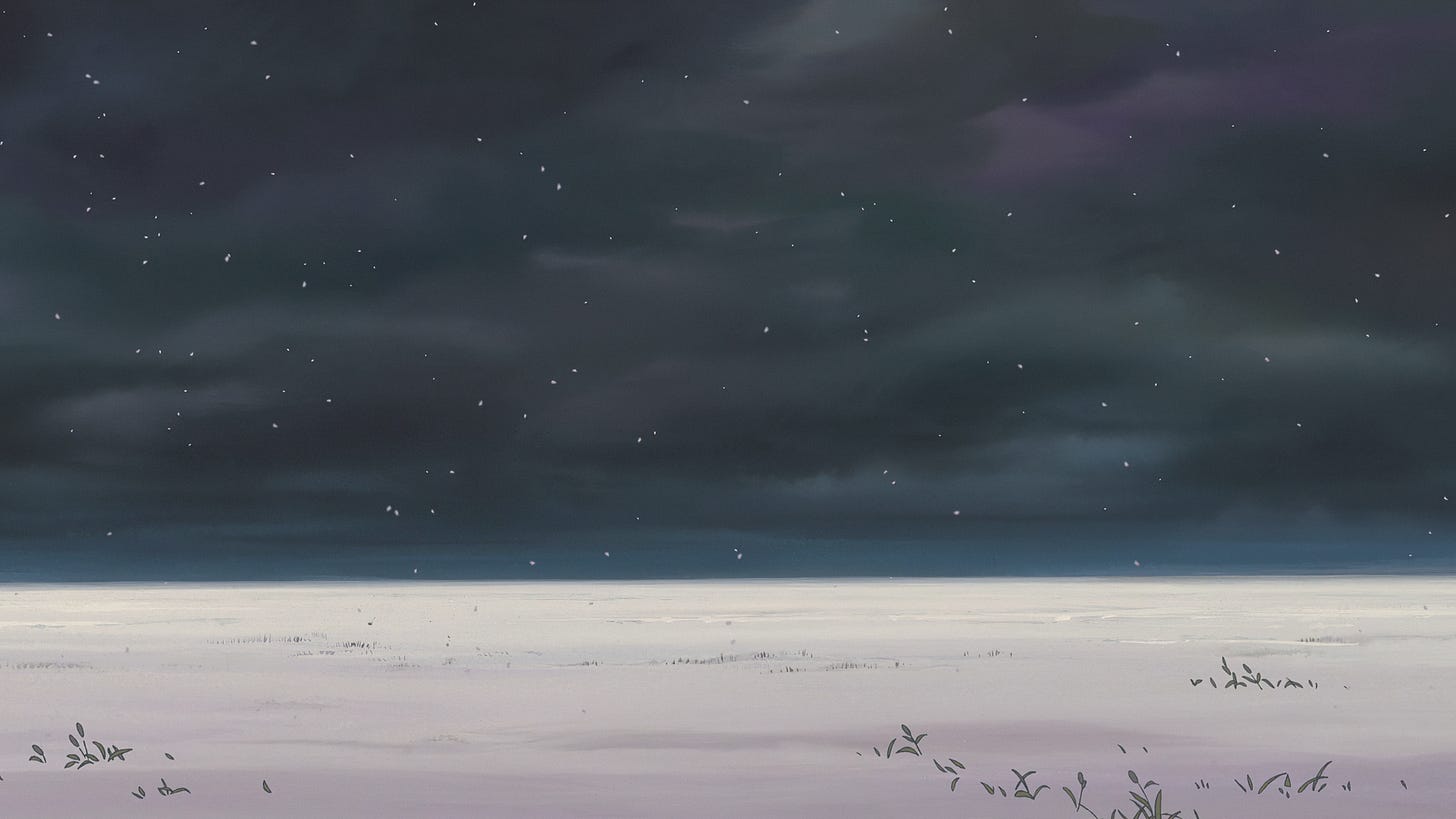
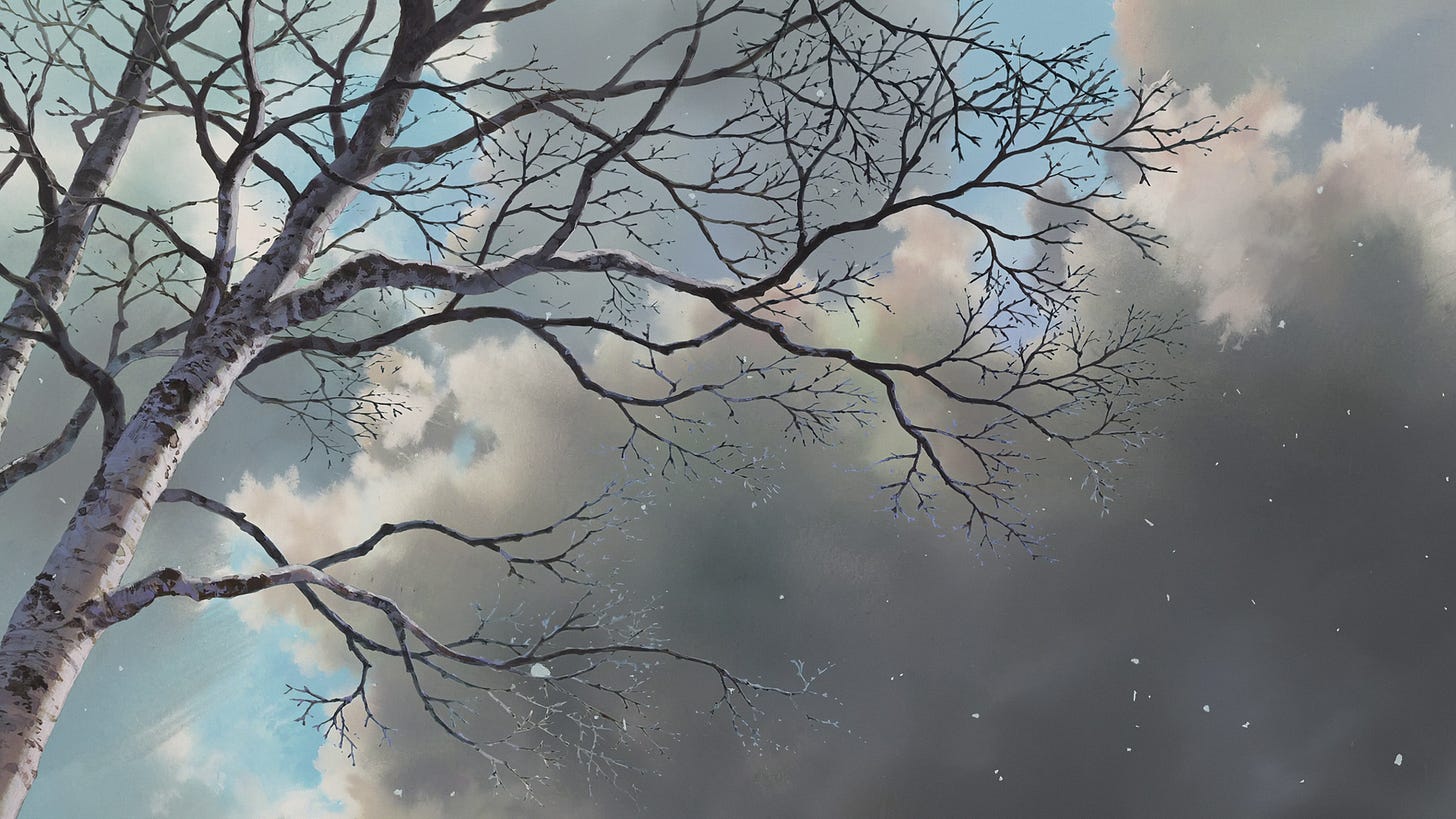

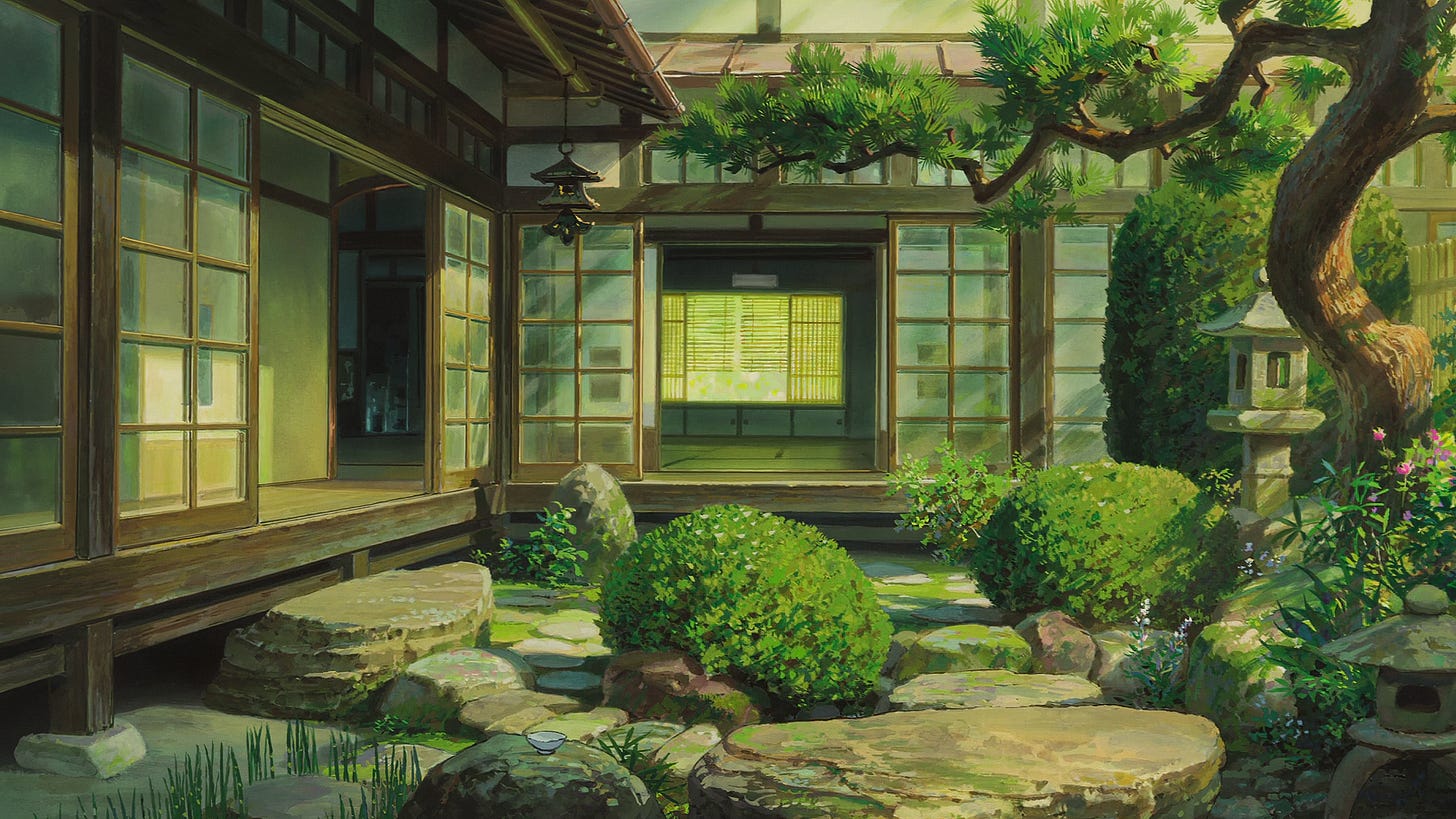

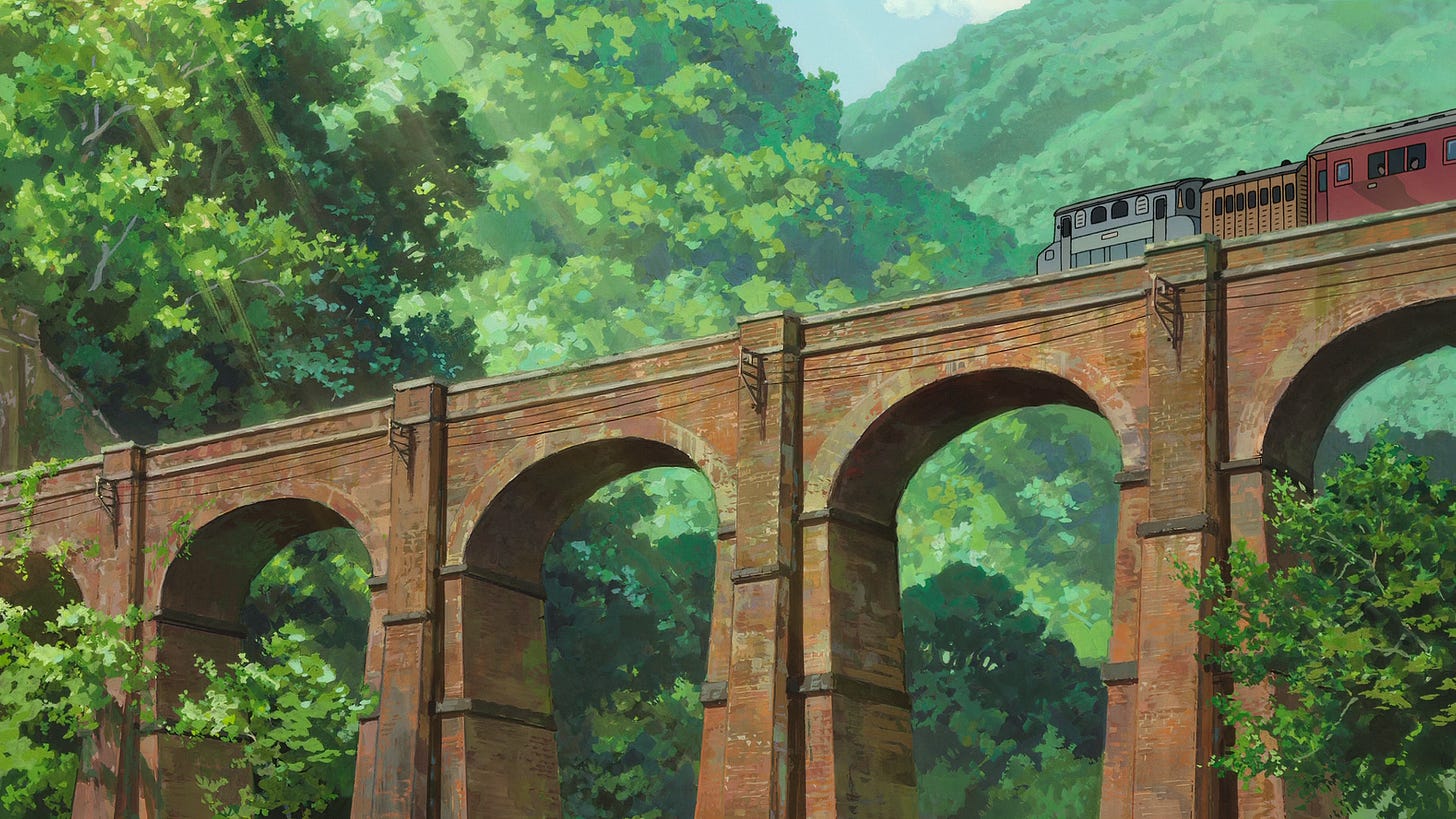



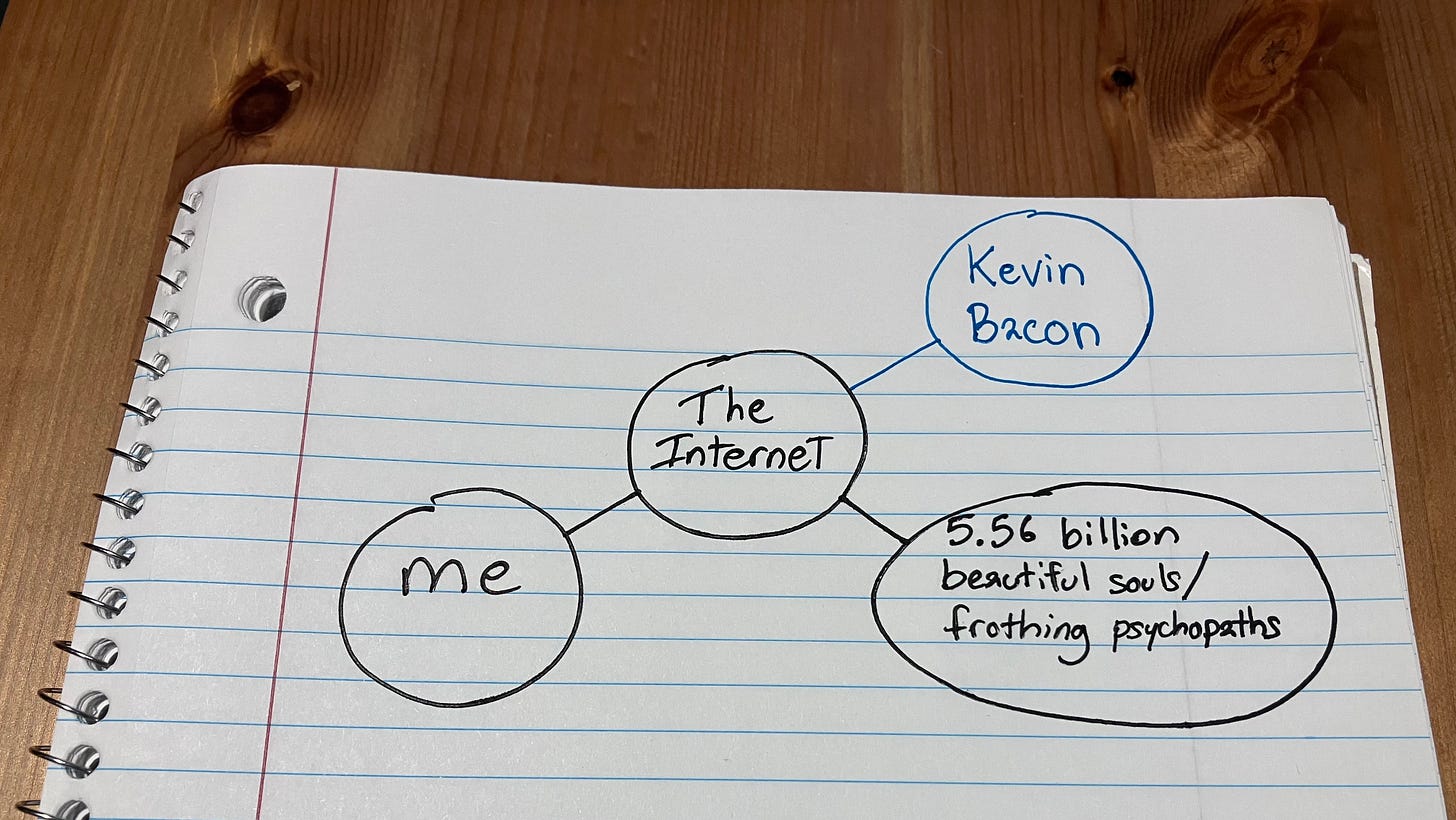
Great newsletter, Matt. A few of my favorite quotes:
“The default culture claims that “being informed” is virtuous yet decouples the virtue from the taking of action, which is actually just narcissism”
“It’s only when the end of the train passes your window that you realize you were never moving at all” - this is how I feel after I’ve spent 30 minutes on X trying to figure out what way the stock market’s going to go, or what to think about x/y/z news event. I’ve stayed in one place, meanwhile the day has progressed.
It reminds me of the “decathlon” scene from Billy Madison where the moderator states “everyone in this room is now dumber for having listened to your answer”. Editing the statement considering what you’ve written, it’s more like “I’ve let in energy that doesn’t serve me or my greater purpose”
Matt, I loved this for so many reasons. I’m going to have to come back to this one because there’s so many good tidbits in it, like when you mentioned the way you redirect your attention when you notice it get hijacked to something as simple as “a human in my presence and how cool it is that they are similar or different from me.”
In my day to day as a mom, it’s easy for boredom to creep in sometimes (or even just random negative, superego, judgmental thoughts), and I love this idea of just noticing it, allowing it, and then doing something as simple as just noticing the little humans in front of me, the little curls in their hair, their feet. That’s like a prayer, it’s beautiful.
Everyday, each of my girls requires a separate whole long process to be put down for naps in which I’m “forced” to sit in a dark room with no devices and white noise. And every time it’s so hard for me to submit to this, despite the fact that most of my best insights come to me during this time. It’s truly incredible how resistant we are to allowing space in our brain. Although it makes sense in this culture where noise is the default.
I so appreciate you putting all these things into words during a time where I’m aware of these things and struggling to overcome them, thank you for this beautiful reminder 🙏🏻